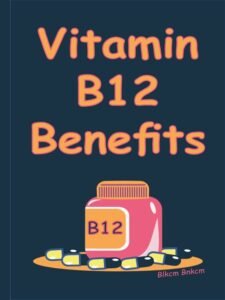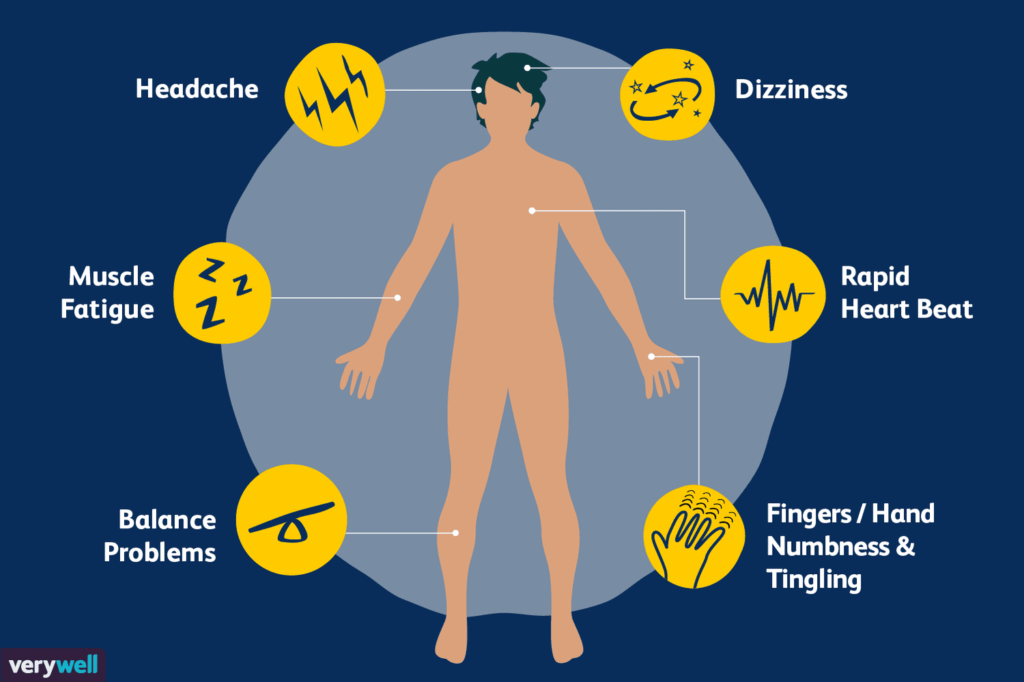Introduction: Wellhealthorganic Vitamin B12
Vitamin B12, also known as cobalamin, plays a crucial role in maintaining overall health and well-being. This essential nutrient is involved in various bodily functions, including the production of red blood cells, DNA synthesis, and nerve function. Wellhealthorganic provides valuable insights into the benefits of Vitamin B12, its sources, and how it supports health. This comprehensive guide explores the significance of Vitamin B12, the impact of deficiencies, and effective ways to ensure adequate intake.
Understanding Vitamin B12
1. What is Vitamin B12?
Vitamin B12 is a water-soluble vitamin that is vital for numerous bodily functions.
- Chemical Structure: It exists in several forms, including methylcobalamin and cyanocobalamin, with methylcobalamin being the most bioactive form.
- Function: Vitamin B12 supports the formation of red blood cells, aids in neurological function, and is essential for DNA synthesis.
2. Importance of Vitamin B12 for Health
Vitamin B12 plays a critical role in maintaining various aspects of health:
- Red Blood Cell Formation: It helps in the production of healthy red blood cells, which transport oxygen throughout the body.
- Neurological Health: Vitamin B12 is crucial for maintaining the health of nerve cells and preventing nerve damage.
- DNA Synthesis: It is essential for the synthesis of DNA, the genetic material in all cells.
- Energy Levels: Adequate Vitamin B12 levels contribute to energy production and reduce feelings of fatigue.
Sources of Vitamin B12
1. Natural Food Sources
Vitamin B12 is predominantly found in animal-based foods. Key sources include:
- Meat and Poultry: Beef, chicken, and pork are excellent sources of Vitamin B12.
- Fish and Seafood: Fish such as salmon, tuna, and shellfish are rich in Vitamin B12.
- Dairy Products: Milk, cheese, and yogurt provide a good amount of Vitamin B12.
- Eggs: Eggs are another significant source of Vitamin B12.
2. Fortified Foods
For individuals who follow a vegetarian or vegan diet, fortified foods can be an important source of Vitamin B12:
- Fortified Cereals: Many breakfast cereals are fortified with Vitamin B12.
- Plant-Based Milk: Some plant-based milk alternatives, such as soy or almond milk, are fortified with Vitamin B12.
- Nutritional Yeast: This vegan-friendly product is often fortified with Vitamin B12 and adds a cheesy flavor to dishes.
3. Supplements
Vitamin B12 supplements are available in various forms:
- Tablets and Capsules: These are the most common forms of Vitamin B12 supplements.
- Sublingual Tablets: These dissolve under the tongue and are absorbed directly into the bloodstream.
- Injections: For individuals with severe deficiencies or absorption issues, Vitamin B12 injections may be recommended.
Symptoms of Vitamin B12 Deficiency
1. Common Symptoms
Vitamin B12 deficiency can lead to a range of symptoms, including:
- Fatigue and Weakness: A lack of Vitamin B12 can cause anemia, leading to feelings of tiredness and weakness.
- Neurological Issues: Symptoms may include numbness, tingling, or difficulty walking due to nerve damage.
- Memory Problems: Deficiency can affect cognitive function and lead to memory issues or difficulty concentrating.
- Pale Skin: Anemia from Vitamin B12 deficiency can cause paleness of the skin.
2. At-Risk Groups
Certain groups are at higher risk of Vitamin B12 deficiency:
- Vegetarians and Vegans: Those who do not consume animal products may have lower Vitamin B12 levels.
- Older Adults: Absorption of Vitamin B12 can decrease with age due to changes in digestive function.
- Individuals with Gastrointestinal Disorders: Conditions like Crohn’s disease or celiac disease can affect Vitamin B12 absorption.
Diagnosing and Treating Vitamin B12 Deficiency
1. Diagnostic Tests
To diagnose Vitamin B12 deficiency, healthcare providers may use the following tests:
- Blood Tests: Measuring Vitamin B12 levels in the blood is the primary method for diagnosing deficiency.
- Methylmalonic Acid Test: This test helps determine if Vitamin B12 deficiency is the cause of certain symptoms.
2. Treatment Options
Treatment for Vitamin B12 deficiency typically involves:
- Dietary Changes: Incorporating more Vitamin B12-rich foods into the diet.
- Supplements: Taking Vitamin B12 supplements as prescribed by a healthcare provider.
- Injections: For severe cases, Vitamin B12 injections may be necessary to quickly restore levels.
Benefits of Adequate Vitamin B12 Intake
1. Improved Energy Levels
Maintaining optimal Vitamin B12 levels supports overall energy levels and reduces fatigue.
2. Enhanced Cognitive Function
Adequate Vitamin B12 helps maintain cognitive function and supports mental clarity.
3. Healthy Blood Cells
Vitamin B12 supports the production of healthy red blood cells, reducing the risk of anemia.
4. Neurological Health
Proper Vitamin B12 levels contribute to a healthy nervous system, reducing the risk of nerve damage.
Importance of Vitamin B12
Vitamin B12 is crucial for several bodily functions, including:
1. Energy Production: It helps convert food into energy, reducing fatigue.
2. Nerve Health: Supports the maintenance of the nervous system, preventing nerve damage.
3. Red Blood Cell Formation: Essential for the production of healthy red blood cells, preventing anemia.
Benefits of WellHealthOrganic Vitamin B12
 WellHealthOrganic Vitamin B12 supplements offer several benefits:
WellHealthOrganic Vitamin B12 supplements offer several benefits:
– Improved Energy Levels: Regular intake can combat tiredness and boost energy.
– Enhanced Brain Function: It may improve memory and reduce the risk of cognitive decline.
– Better Mood Regulation: B12 supports serotonin production, which can enhance mood and reduce symptoms of depression.
Who Needs Vitamin B12?
Certain groups are more at risk of B12 deficiency:
– Vegans and Vegetarians: B12 is mainly found in animal products, making supplements crucial for those on plant-based diets.
– Older Adults: Absorption decreases with age, increasing the risk of deficiency.
– Individuals with Digestive Disorders: Conditions like Crohn’s disease or celiac disease can hinder absorption.
Signs of Vitamin B12 Deficiency

Common symptoms of deficiency include:
– Fatigue and weakness
– Pale or jaundiced skin
– Nerve problems, like tingling or numbness
– Difficulty thinking and memory loss
| Category | Details |
|---|---|
| Product Name | Wellhealthorganic Vitamin B12 |
| Form | Tablets, Capsules, Sublingual Drops |
| Active Ingredient | Methylcobalamin |
| Dosage | 1000 mcg per tablet/capsule/drop |
| Recommended Use | 1 tablet/capsule/drop daily or as directed by a healthcare provider |
| Bioavailability | High, due to the use of Methylcobalamin |
| Suitable For | Vegetarians, Vegans, Older Adults, Athletes |
| Free From | Gluten, Soy, Dairy, Artificial Colors, and Preservatives |
| Certifications | GMP Certified, Third-Party Tested |
| Packaging | Recyclable, BPA-Free Containers |
| Storage Instructions | Store in a cool, dry place, away from direct sunlight |
| Shelf Life | 2 years from the date of manufacture |
| Health Benefits | Energy Boost, Improved Mental Clarity, Red Blood Cell Formation, Neurological Health |
| Potential Side Effects | Rare; may include dizziness, headache, nausea |
| Price Range | $15 – $30 per bottle (60 tablets/capsules/drops) |
| Availability | Online and in select health stores |
| Customer Rating | 4.8/5 based on customer reviews |
| Company Mission | Promote holistic health through high-quality, natural supplements |
| Customer Support | 24/7 support via email and phone |
What is Vitamin B12?

Vitamin B12, also known as cobalamin, is a water-soluble vitamin that plays a pivotal role in the functioning of the brain and nervous system. It’s also essential for the formation of red blood cells and DNA synthesis. Chemically, it contains the mineral cobalt and can be found in several forms, including cyanocobalamin and methylcobalamin.
Benefits of Vitamin B12

Energy Production
One of the primary benefits of Vitamin B12 is its role in energy production. It helps convert carbohydrates into glucose, which your body uses for energy. If you’re feeling fatigued, low B12 levels might be the culprit.
Red Blood Cell Formation
Vitamin B12 is essential for the production of red blood cells. Without adequate B12, red blood cells can become abnormally large and fail to divide properly, leading to anemia.
Neurological Health
Vitamin B12 plays a significant role in maintaining neurological health. It helps in the production of myelin, a protective sheath that covers your nerves. A deficiency can lead to neurological issues, including memory loss and mood changes.
DNA Synthesis
Every cell in your body needs DNA to function properly. Vitamin B12 is crucial for DNA synthesis, ensuring that cells divide correctly and function optimally.
Conclusion
Vitamin B12 is a vital nutrient that supports numerous aspects of health, including red blood cell formation, neurological function, and DNA synthesis. Ensuring adequate intake through dietary sources, fortified foods, or supplements is essential for maintaining optimal health. Wellhealthorganic provides valuable insights into the significance of Vitamin B12, helping individuals understand its role, recognize symptoms of deficiency, and explore effective ways to achieve sufficient levels. By staying informed and proactive about Vitamin B12, individuals can support their overall well-being and enjoy the benefits of this essential nutrient.
